Manage Your
Career
How to develop your career in the right direction
A & C Black London
Revised edition first published in Great Britain 2009
A & C Black Publishers Ltd
36 Soho Square, London W1D 3QY
www.acblack.com
Copyright A & C Black Publishers Ltd, 2009
First edition 2006 A & C Black Publishers Ltd, 2006
All rights reserved; no part of this publication may be reproduced, stored in a retrieval system, or transmitted by any means, electronic, mechanical, photocopying or otherwise, without the prior written permission of the Publisher.
No responsibility for loss caused to any individual or organisation acting or refraining from action as a result of the material in this publication can be accepted by A & C Black Publishers Ltd or the author.
A CIP record for this book is available from the British Library.
eISBN: 978-1-40813-413-9
This book is produced using paper that is made from wood grown in managed, sustainable forests. It is natural, renewable and recyclable. The logging and manufacturing processes conform to the environmental regulations of the country of origin.
Design by Fiona Pike, Pike Design, Winchester
Typeset by RefineCatch Ltd, Bungay, Suffolk
Printed in Spain by GraphyCems
Contents

Answer the questions and work out your score, then read the guidance points for advice on taking your career in the right direction.

Does your job utilise your main strengths?
a) I dont know what my strengths are.
b) Not really.
c) Yes.
Are you happy with where you see yourself in 3 years time?
a) No. Id like to have had a more varied career by then.
b) Fairly.
c) I am concerned that I wont have had enough of a life outside work.
What is your next goal?
a) To have a career within my area of interest.
b) Nothing realistic.
c) To sort out some personal issues.
Have you considered a career change recently?
a) Yes.
b) I would like to but I am worried about lack of security.
c) No.
If the opportunity arose to change jobs, how easy would it be for you to accept?
a) I doubt it would arise.
b) I would be concerned about the risks.
c) Very.
Do you experience stress at work?
a) No.
b) I suppose sosometimes I cant sleep.
c) Yes.
Does your current CV accurately reflect you as a person and as an employee?
a) Not reallyits functional, not personal.
b) I havent updated it for ages.
c) Not as a person. I seem to have no life outside of work.
Is there any chance that you might be promoted in your current workplace?
a) No.
b) There are opportunities, but I doubt they will come my way.
c) Yes, if I continue to work hard.
I make decisions:
a) Only when I have to.
b) Very rarely!
c) Often and quickly.
When faced with different types of risk (emotional or financial, for example), I am generally:
a) Nervous.
b) Cautious.
c) Impulsive.
a = 1, b = 2, and c =
Now add up your scores.
14: You really should consider moving on from your current situation. To avoid another unrewarding job, be sure of what it is that you want from a career (chapter 2 will help you). Make sure you have done plenty of research before you make the move (see chapter 3).
19: Though you seem to be managing your career, make sure you are not sticking at something just because it is a safe option. In 20 years time will you be able to look back on your life and say that you achieved what you wanted? Chapter 1 will help you to decide whether your existing job is really right for you. If it is not, chapters 3 and 4 will help you to decide whether to move on and how to achieve greater job satisfaction.
24: You seem to be focussed on making the most of your talentsbut be careful that being a success at work does not override your ability to enjoy the rest of your life and still achieve those personal ambitions which you have perhaps neglected. Chapter 5 will help you to identify whether you have a problem with stress, and can help you to put your priorities back in order.

The last time many of us thought seriously about our careers was at school or university. We set out on our career paths with a clear starting point and some idea of what we might move on to, but a complete blank for what was to come after that. If you find yourself at a bit of a crossroads, then its time to take action and to actively manage your career to make sure youre getting the most from it, both financially and in terms of your personal development.
Its rare these days that employers provide us with career-long job security, so its up to us to craft our own career strategies and manage them carefully. The alternative?Ending up on the sidelines while opportunities pass us by. This chapter offers help on the first step towards managing your career:assessing your present situation, and deciding whether you are really heading for where you want to be.

Step one: Stop and think
Its human nature to wonder, regardless of what we happen to be doing, whether we ought in fact to be doing something else. This is particularly the case with jobs; most people spend at least some of their working life questioning themselves and their careers and speculating about whether there are other occupations out there which might make better use of their time and efforts.
When you feel you have reached an impasse, or when outside factors force you to stop and think, it is important to ask yourself:
 Would I be happy to continue what I have been doing for the rest of my working life?
Would I be happy to continue what I have been doing for the rest of my working life?
 What do I really want to do?
What do I really want to do?
 How will I make the transition?
How will I make the transition?
As with most things, it helps to analyse the situation objectively. A job is made up of many elementsits not just the actual day-to-day workand its the combination of these elements that makes it suitable or otherwise. Your skills, of course, are fundamental to what you do, but are these the same as your strengths? And what about your values? Then theres the company you work for: is it the right size, in the right industry sector, with the right culture? Then there are the questions about who you work with, what your boss is like, whether you have suitable levels of responsibility, what kind of pay and benefits you receive, and so on and so forth.
By looking at all these factors, you can work out whether your job is suitable for you, and, if not, what needs to be put right.
Step two: Identify your areas of interest
First and foremost, if youre not interested in what youre doing, youre never going to be able to put your heart into your work. So, if your company, industry, subject, or sector doesnt engage you, it might be a good idea to go back to basics and identify one that does.

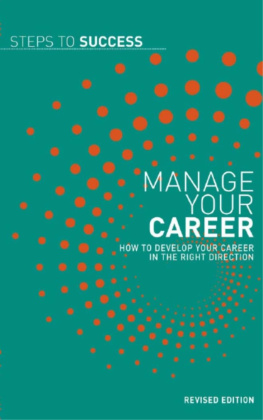



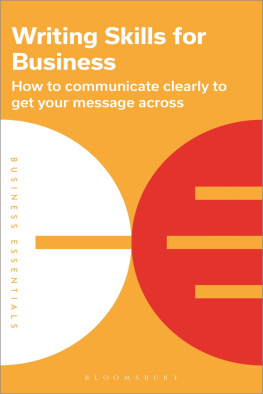




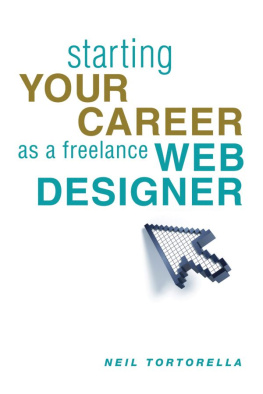
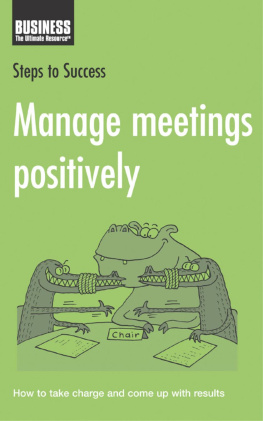

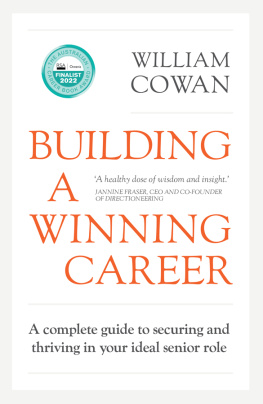
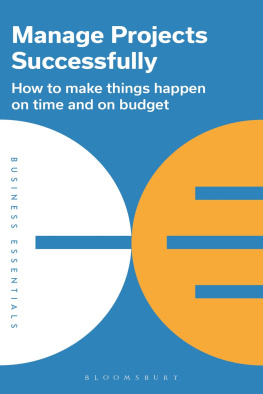
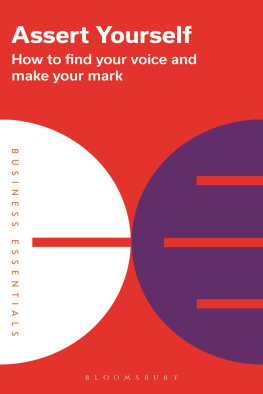
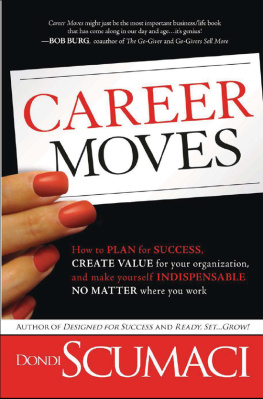
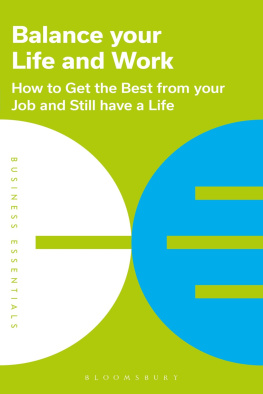
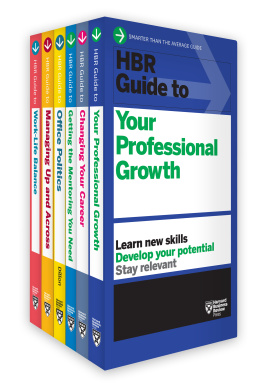
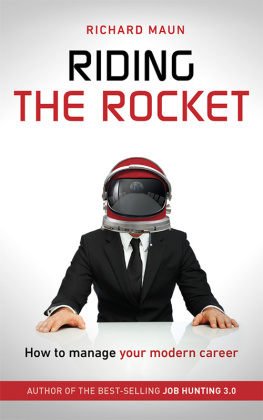


 Would I be happy to continue what I have been doing for the rest of my working life?
Would I be happy to continue what I have been doing for the rest of my working life?